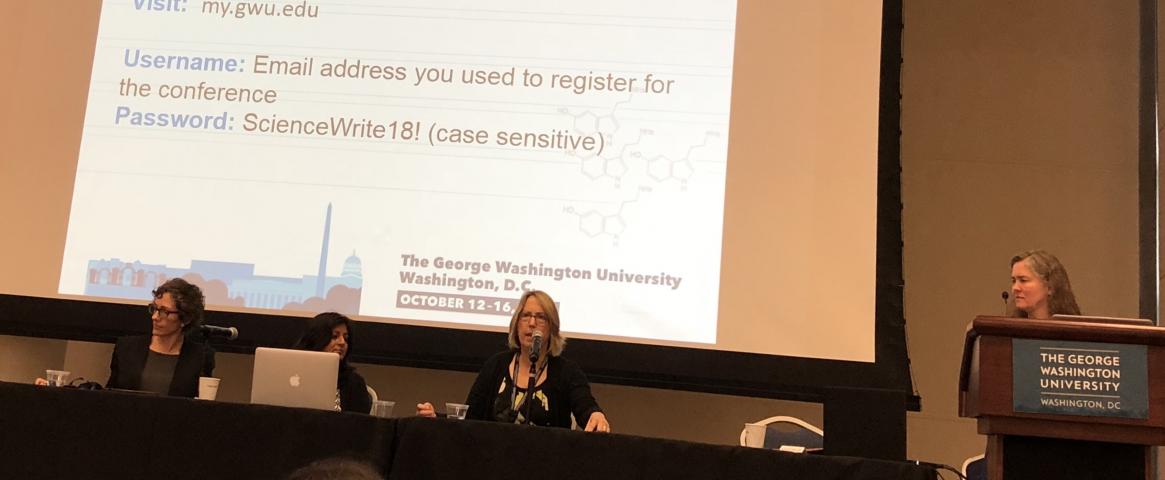By Patricia Fernandez
You've just found yourself in the manager's seat. Maybe your mind is racing with thoughts. "How in the world did I get here?" "What am I supposed to do?" Or you worked your tail off to get there and are excited but have found yourself tackling unexpected challenges.
Laura Helmuth, health, science and environment editor for the Washington Post, moderated a panel of Kathryn Brown, chief of communications of Howard Hughes Medical Institute; Apoorva Mandavilli, editor-in-chief of Spectrum in New York, N.Y.; and Nancy Shute, editor-in-chief of Science News, Washington, D.C. Together they provided a well-rounded perspective on the responsibility of being a manager through a panel questionnaire and quick advice points.
Helmuth's first question addressed personalized management interests.
Apoorva focused on managing your team's personalities. She said, "My three personality buckets include: communication preferences, skills, and styles, work flow and habits, and their tendency to seek professional development and raises." She stressed the importance of representing everyone's voice and work styles to create a safe and productive work space. Reading your employees' needs and shortcomings to properly address them and keeping a constant open-communication workplace with frequent meetings are vital managerial responsibilities. She believes that being a good manager means making the most of your employees' styles and setting clear expectations to avoid conflict and encourage growth.
This was a natural transition into the topic of necessary managerial skills.
Brown compared manager-employee relationships to the editor-writer scenario, where an editor may receive a piece with a lot of errors and just rewrite it, thereby upsetting the writer. There are several problems associated with this scenario. Brown stressed that, "It is the manager's responsibility to make the task easy on their employee," but not in the way you may think. The central theme here is the distinction between coaching and fixing. Again, setting clear expectations and goals ensures employees have accountability and know their priorities. To ensure the smooth execution of a project it is important to delegate tasks appropriately, stay engaged and adaptable with your employees, and always create learning opportunities along the way.
Of course, no workplace is completely free of conflict. All panelists agreed that conflict is essential to growth. Conflict should be an openly discussed topic and not a surprise. Shute emphasized that structuring your workforce prior to beginning a project is a good way to process and ameliorate conflict if it comes. The panelists also believe conflict needs to be destigmatized, whether it is within the workplace or personal. If someone is underperforming, address the issue immediately and repurpose them to play-up their strengths.
The session ended with an array of quick advice points, from finding a mentor, to celebrating successes, keeping an open mind, emphasizing inclusion in the workplace, and even keeping a box of Kleenex handy. Many online resources exist to give management-scenario tips, and D.C.'s Management Center has excellent workshops to aid in your managerial journey. Congrats again!


